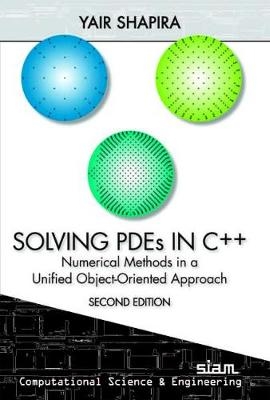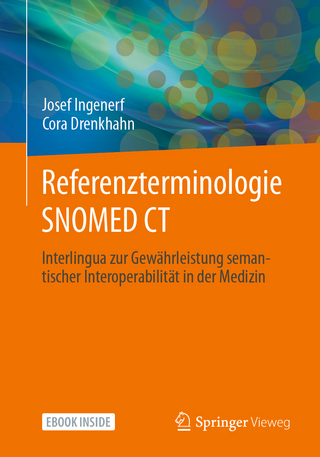
Solving PDEs in C++
Society for Industrial & Applied Mathematics,U.S. (Verlag)
978-1-61197-216-0 (ISBN)
This text provides a comprehensive guide for the numerical solution of PDEs using C++ within an object-oriented approach. The high level of abstraction available in C++ is particularly useful in the implementation of complex mathematical objects, such as unstructured meshes, sparse matrices and multigrid hierarchies, often used in numerical modeling. Assuming only an elementary knowledge of calculus and linear algebra, the reader is given a full introduction to programming, PDEs and numerical methods. The learning process is illuminated further by practical examples alongside exercises and solutions that are found at the end of each chapter. This massively expanded second edition contains a wealth of new material, including sections on cryptography, image processing and solution of nonlinear PDEs, accompanied by new reader-friendly code. This book is ideal for students, engineers and researchers who want to use advanced numerical programming methods to solve problems in applied science and engineering.
Yair Shapira is engaged in research in the Computer Science Department, Technion – Israel Institute of Technology, Haifa, Israel. His main research interests are multigrid, preconditioning and numerical methods. He is author of the books Matrix-Based Multigrid: Theory and Applications, 2nd Edition (2008) and Mathematical Objects in C++: Computational Tools in a Unified Object-Oriented Approach (2009).
List of figures; List of tables; Preface; Part I. Elementary Background in Programming: 1. Concise introduction to C; 2. Concise introduction to C++; 3. Data structures used in the present algorithms; Part II. Object-Oriented Programming: 4. From Wittgenstein–Lacan's theory to the object-oriented implementation of graphs and matrices; 5. FFT and other algorithms in numerics and cryptography; 6. Object-oriented analysis of nonlinear ordinary differential equations; Part III. Partial Differential Equations and their Discretization: 7. The convection-diffusion equation; 8. Some stability analysis; 9. About nonlinear conservation laws; 10. Application in image processing; Part IV. The Finite Element Discretization Method: 11. About the weak formulation; 12. Some background in linear finite elements; 13. Unstructured finite-element meshes; 14. Adaptive mesh refinement; 15. Towards high-order finite elements; Part V. The Numerical Solution of Large Sparse Linear Systems of Algebraic Equations: 16. Sparse matrices and their object-oriented implementation; 17. Iterative methods for the numerical solution of large sparse linear systems of algebraic equations; 18. Towards parallelism; Part VI. Applications in Two Spatial Dimensions: 19. Diffusion equations; 20. The linear elasticity equations; 21. The Stokes equations; 22. Application in electromagnetic waves; 23. Multigrid for nonlinear equations and for the fusion problem in image processing; Part VII. Applications in Three Spatial Dimensions: 24. Polynomials in three independent variables; 25. The Helmholtz equation: error estimate; 26. Adaptive finite elements in three spatial dimensions; 27. Application in nonlinear optics: the nonlinear Helmholtz equation in three spatial dimensions; 28. High-order finite elements in three spatial dimensions; 29. Application in the nonlinear Maxwell equations; 30. Towards inverse problems; 31. Application in the Navier–Stokes equations; Appendix. Solutions to selected exercises; Bibliography; Index.
| Reihe/Serie | Computational Science and Engineering |
|---|---|
| Verlagsort | New York |
| Sprache | englisch |
| Maße | 175 x 255 mm |
| Gewicht | 1380 g |
| Themenwelt | Mathematik / Informatik ► Informatik ► Programmiersprachen / -werkzeuge |
| Informatik ► Theorie / Studium ► Algorithmen | |
| Mathematik / Informatik ► Mathematik ► Algebra | |
| Mathematik / Informatik ► Mathematik ► Analysis | |
| ISBN-10 | 1-61197-216-7 / 1611972167 |
| ISBN-13 | 978-1-61197-216-0 / 9781611972160 |
| Zustand | Neuware |
| Haben Sie eine Frage zum Produkt? |
aus dem Bereich


